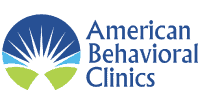Child & Adolescent Psychiatry Alerts
In the July 2012 issue of Child & Adolescent Psychiatry Alerts several studies held interest for us.
The first on Pharmacotherapy for Cannabis Dependence took N-acetylcysteine (NAC), which is an over the counter antioxidant dietary supplement that has glutaminergic properties, and used it in a controlled study as an add on treatment to cannabis dependent subjects in the age range of 13-21 years of age.
For an 8-week trial period the adolescents participating in the study were given either 1200mg NAC three times a day or a placebo. The trial was a double blind trial that used urine drug screening weekly to test for cannabis usage. During this period the participants that had been given the NAC had twice the negative urine tests than the placebo group.
This study, funded by the National Institute on Drug Abuse, seems to be leading those who treat drug and alcohol abuse to an low cost, over the counter, well tolerated treatment for cannabis abuse that could potentially be used in other addiction disorders. However; more studies should be done to investigate this treatment as a monotherapy and how it would work in combination with other treatments.
Another study compared ADHD and Sensory Modulation Disorder. Sensory Modulation Disorder (SMD) is characterized by having difficulties in detecting, modulating, interpreting, and or organizing sensory stimuli. Sensory stimuli being hearing, smell, taste, touch, vision and equilibrium.
Using a study group of 176 children, one parent of the child filled out a total of 4 parent report measures. When the data was studied researchers found that those children identified as having SMD had more parent-reported problems and physical complaints than peers with a diagnosis of ADHD. The SMD group were also more likely to have a difficult time adapting and tended to be more withdrawn and anxious, though they had fewer attention problems, than the group with ADHD.
It seems that it is clinically important to differentiate between a diagnosis of SMD and ADHD as children with ADHD see more benefit from cognative therapy while children with SMD see more benefit from occupational therapy.
In a small case-control study there was a suggestion that a gamma-aminobutyric acid deficit may have some role in the causation of ADHD. GABA works in the central nervous system as the chief inhibitory neurotransmitter in mammals as well as regulating neuronal excitability.
13 children participated in this small case controlled study. The results showed the children with ADHD had a significantly lower GABA level than those children who were developing normally.
In it’s role as the primary inhibitory neurotransmitter GABA has a correlation in both motor control and impulsivity in adults. It may be essential for the cortical inhibitory function to use a GABAergic transmission to properly filter sensory information as well as selecting using appropriate behavioral response that is lacking in children with ADHD.
A Vitamin B12 deficiency can result in symptoms which can include irritability, being negative, confusion, impaired concentration and attention, amnesia and insomnia. These psychiatric symptoms can often lead to diagnosis of depression, bipolar disorder, panic, phobias or even psychosis and dementia.
It may be possible that mood disorders that contain psychotic features that are lacking in a clear cause, especially if there are complaints of movement disorders, could be a result of a B12 deficiency in younger patients. And evaluation of the B12 as well as the folate levels may be beneficial.
A studying of self harm and bullying done with 2232 British children showed that more than half of the children who self- harm were also victims of frequent bullying.
In fact, children who were bullied were 3 times more likely to engage in self-harm. Family history of suicide was also a strong predictor of bullied children who also self-harmed. Other predictors included, parental mistreatment, extreme borderline characteristics, poverty, ADHD or depression and psychotic symptoms.
This suggests that schools and health care professionals should target children with risk factors such as a family histories of suicide, maltreatment in the home; show symptoms of depression or psychosis and who have conduct problems or have characteristics of a borderline personality with programs aimed at lowering their risk of self-harm.
Existing Patients and New Patients, Call us to schedule an appointment, get a prescription refill or just to ask a question:
New Patients ONLY - Want to contact us through a form? CLICK HERE to fill out our contact form.





